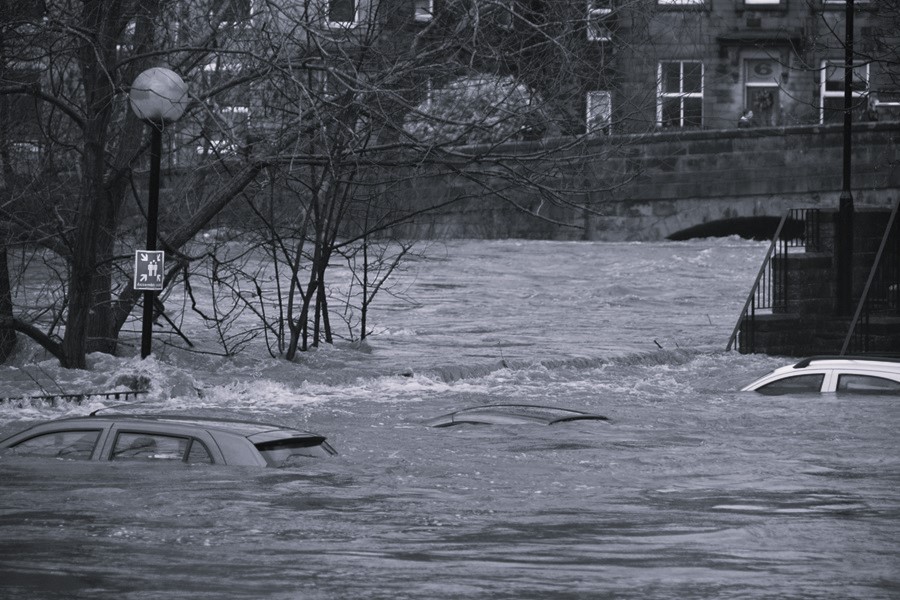There is a whopping great elephant in the room when it comes to solving the climate and biodiversity crises: the simple question of “who’s going to pay for it?”
Of course, in the long run, when our houses are flooded, our forests burnt and our supermarkets shelves empty, we will effectively all be “paying for it” or at least paying for our inaction. To avoid this dystopian future, we need to start coughing up for the planet now.
However, working out who the “we” in that last sentence should be is tricky. Should it be governments, corporates, consumers, investors, specialist environmental organisations, those who can afford it, those who create the most environmental damage now or those who have historically created the most damage?
Often the answer lies with working out who created the problem in the first place. But when that boils down to industrialisation, capitalisation and the rise of global consumption it’s hard to pinpoint exactly whodunnit and is responsible. It’s a systemic issue, we are all part of the problem, just as much as we have all benefitted from the problematic system in the first place.
But no matter who is responsible, environmental crises will impact everyone, and those with the least will be hit the worst. Without strong regulation―think a global carbon tax―that forces everyone to shoulder some responsibility, investing in our ecosystems will remain voluntary, which means the question of who should pay will always be there.
So how do we shift away from this blame game, finger pointing and shirking of responsibility when it comes to delivering environmental action?
I think we need a mindset shift. Enter the Natural Health Service. Imagine if, as a nation, we viewed fixing the health of our natural environment as something truly integral to our collective prosperity. We’ve been radical with health before…
The NHS was created as the ultimate collective social insurance policy. It was set up in 1948 to improve public health by creating a comprehensive, coordinated system that would make healthcare accessible to everyone, based on need not on ability to pay. Poor health was seen as a significant drain on productivity and a healthier population was deemed essential to creating a stronger post-war economy.
Today, poor environmental health is one of the greatest risks facing our economy. According to Finance Earth, damage to the natural environment could lead to an estimated 12% reduction to UK GDP in the years ahead; larger than the hit to GDP from the global financial crisis or COVID. So, to avoid this, lets create a new Natural Health Service, a country-wide programme to boost the health of our nation’s nature and ecosystems.
What would a national operation to heal the UK’s environmental health actually look like?
We’d restore our broken river systems, slowing the flow of water to reduce flooding and water pollution, creating new wetlands and saltmarsh. We’d plant more trees and encourage more natural regeneration of woodlands, rewet peatlands and fenlands, reducing emissions and increasing carbon sequestration. We’d make more space for nature, for precious habitats and dwindling species.
Critically, we’d restore the fertility of our soils, using regenerative techniques to increase organic matter, and grow more nutritious, environmentally positive food. All of these actions would create a much more resilient and productive nation. Productive in the true sense of the word: economically, environmentally and socially.
Of course, the Natural Health Service and the National Health Service are interlinked. Healthier ecosystems mean healthier humans, not only through our access to better nature and the mental and physical benefits that creates, but also in the air we breathe, water we drink and nutrients we consume. The symbiosis between people and planet is inextricable.
The great news is a lot of this work is already happening. Farmers, land managers, ecologists and communities up and down the country are getting their boots on the ground and hands dirty restoring the UK’s natural health. Taxes are being spent on Environmental Land Management Schemes as the government makes money available for delivering environmental outcomes and companies are starting to buy ecosystem services as regulation and consumer pressure forces them to.
So, what makes a Natural Health Service different to what’s currently happening in the UK? It would build on existing efforts to enable co-ordinated, nation-wide, collective action that can be measured and scaled. It would help us understand the health of our ecosystem services as intrinsic to us all, and acknowledge that nature’s infrastructure is critical infrastructure – something we must all buy in to.




